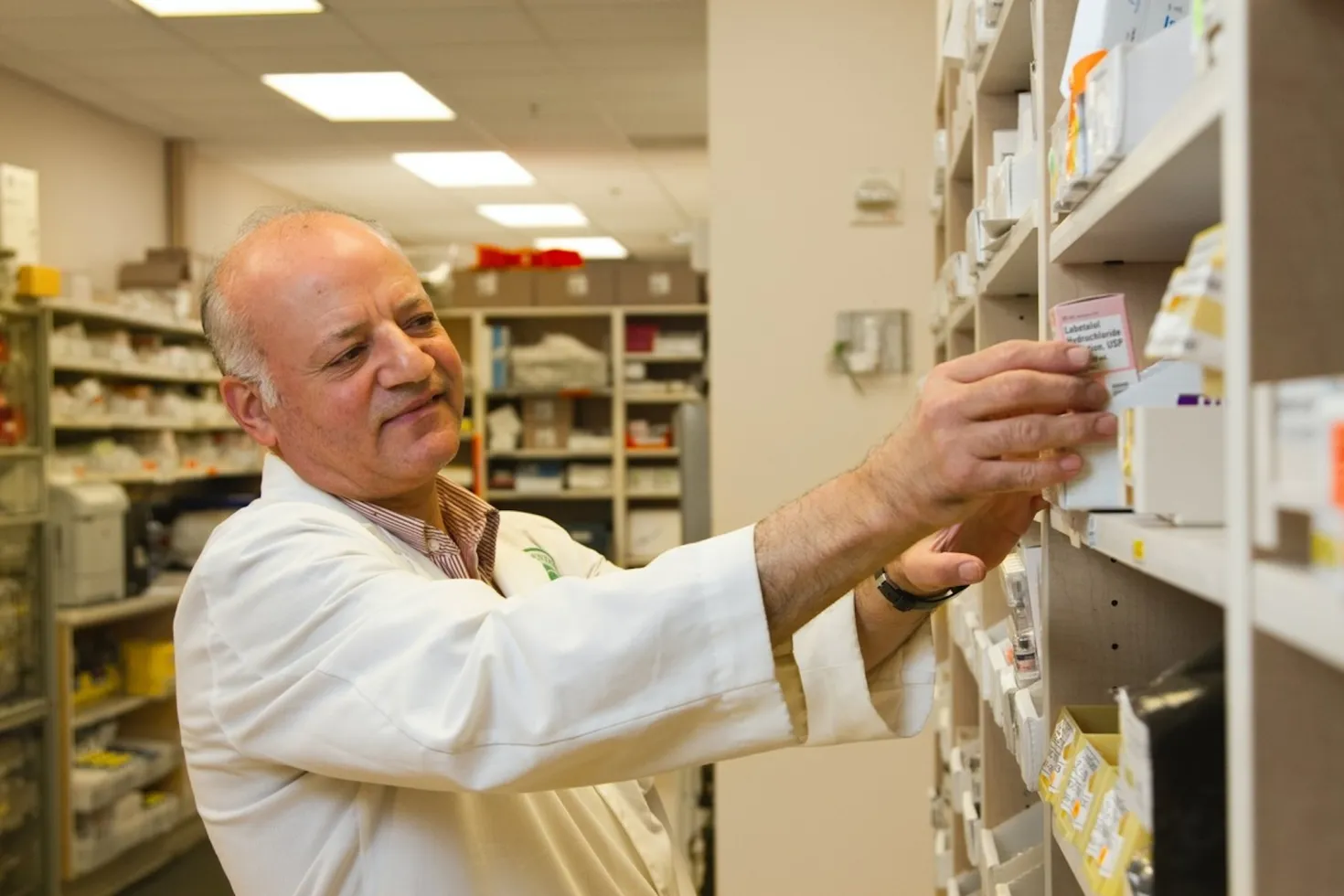People with cancer face up to three times the risk of drug-resistant infections, new research warns
A study by the Cancer and AMR Consortium, a collaboration among UICC, BD, and the AMR Action Fund, quantifies the significant exposure of people living with cancer to growing resistance to antibiotics and other antimicrobials, and its impact on their survival and quality of life.

HIGHLIGHTS
- A study of more than 1.6 million bacterial samples by the Cancer and AMR Consortium published today in The Lancet Oncology found that people living with cancer face antimicrobial-resistant infections at rates of up to three times higher than those without cancer.
- Certain specific pathogens that can cause life-threatening infections, such as bloodstream infections or occurring after surgery or chemotherapy, were up to five times higher among cancer patients.
- Experts warn that AMR could disrupt a person’s quality of life, delay treatments, and undermine the effectiveness of cancer treatments, including chemotherapy, surgery, immunotherapy, and new innovations such as CAR T-cell therapy.
- The study calls for improved infection prevention and control practices, effective antimicrobial stewardship, access to appropriate diagnostics, and to effective antimicrobials to support treatment and care for cancer patients.
People living with cancer are overall up to three times more likely to suffer infections from drug-resistant ‘superbugs’ compared to those without cancer, according to new findings released today in The Lancet Oncology. This study highlights rising concerns around the growing impact of antimicrobial resistance (AMR) on cancer care globally.
The research analysed over 1.6 million bacterial samples drawn from 198 outpatient sites across the United States. Investigators found notably higher rates of AMR among people living with cancer, with certain pathogen source combinations occurring at rates more than five times greater than in non-cancer patients.
These include vancomycin-resistant enterococci and multidrug-resistant Pseudomonas aeruginosa, which are related to severe hospital-acquired infections, such as pneumonia, bloodstream, and surgical site infections.
The research was led by the Cancer & AMR Consortium, a collaboration among UICC, BD (Becton, Dickinson and Company), and the AMR Action Fund.
“While we expected cancer patients to be at an increased risk of superbugs, we were surprised at the high proportion of AMR pathogens among cancer patients compared to non-cancer patients, especially in outpatient settings. It’s now abundantly clear that superbugs pose complex challenges to cancer patients across the spectrum of care.”
– Diane Flayhart, corresponding author and Director Global Public Health at BD
These findings build upon earlier research published in Cancer Medicine in December 2024, which reported that hospitalised cancer patients were 1.5 to 2 times more prone to resistant infections compared to other patients.
AMR is rapidly diminishing the effectiveness of available antimicrobial medicines, contributing to approximately 4.7 million deaths per year globally. By 2050, an estimated 39 million people may die annually due to AMR without improved access to healthcare and antibiotics.
The implications for cancer care are profound. Antimicrobials, including antibiotics and antifungals, are vital, not only as a treatment for infections but also preventatively to reduce the risk of infections associated with surgery, chemotherapy, and immunotherapy. This heightens the risk of severe complications and mortality for people living with cancer.
“As an oncologist, my ability to effectively treat a patient’s cancer is predicated on the idea that antibiotics will both cure and prevent potentially fatal infections throughout their course of care. The rapid emergence of AMR among oncology patients will affect cancer care, including the possibility of undermining new innovations such as CAR T-cell therapy and other immunotherapies, given the risk of immunosuppression and opportunistic infections associated with these therapies.”
– Dr Yehoda Martei, co-author of the study and Assistant Professor of Medicine (Hematology-Oncology) at the Hospital of the University of Pennsylvania
The authors called for reinforced infection prevention protocols, effective antimicrobial stewardship, improved diagnostic methods, and broader access to effective antimicrobials, urging these measures be woven into cancer care strategies.
Looking ahead, the Cancer and AMR Consortium aims to conduct further studies to deepen understanding of AMR risks in oncology and guide both policy and clinical efforts to protect patient outcomes.
“When a person living with cancer develops a drug-resistant infection, it can delay or disrupt treatment and diminish quality of life. With this new data from the Cancer and AMR Consortium indicating that people with cancer are up to three times more likely to have such infections, it is essential that health systems, clinicians, and people living with cancer are equipped to mitigate this risk through better infection prevention, timely diagnosis and access to effective antimicrobials as part of cancer control planning.”
– Cary Adams, CEO of UICC.
Access the article in The Lancet Oncology
The high global burden of drug-resistant infections in patients with blood cancers
A large scoping review, also published in this May edition of The Lancet Oncology, has revealed a high global prevalence of antimicrobial resistance (AMR) in patients with haematological malignancies, reinforcing concerns about rising treatment complications in immunocompromised populations. Drawing on 274 studies across 52 countries, the review found that 35% of bacterial infections in this group involved resistant pathogens, with bloodstream infections being the most common. Particularly high resistance rates were reported for third-generation cephalosporin-resistant Enterobacterales (44%), MRSA (43%), and vancomycin-resistant enterococci (41%). Furthermore, of the 81 studies that reported on mortality, 65% showed higher mortality rates were associated with AMR infections
The study also highlighted significant data gaps from low- and middle-income countries and a need for standardised reporting, with better AMR surveillance systems tailored to cancer care, more clinical trials and effective antimicrobial stewardship.
Among the co-authors of the study are: Dr Danielle Rodin, former UICC Board Member; Dr Yehoda Martei and Prof Lillian Sung, members of the UICC-led Task Force on AMR and cancer; and Sonali Johnson and Shalini Jayasekar Zurn, respectively Head and Senior Manager of Knowledge, Advocacy and Policy at UICC.
Last update
Wednesday 14 May 2025
